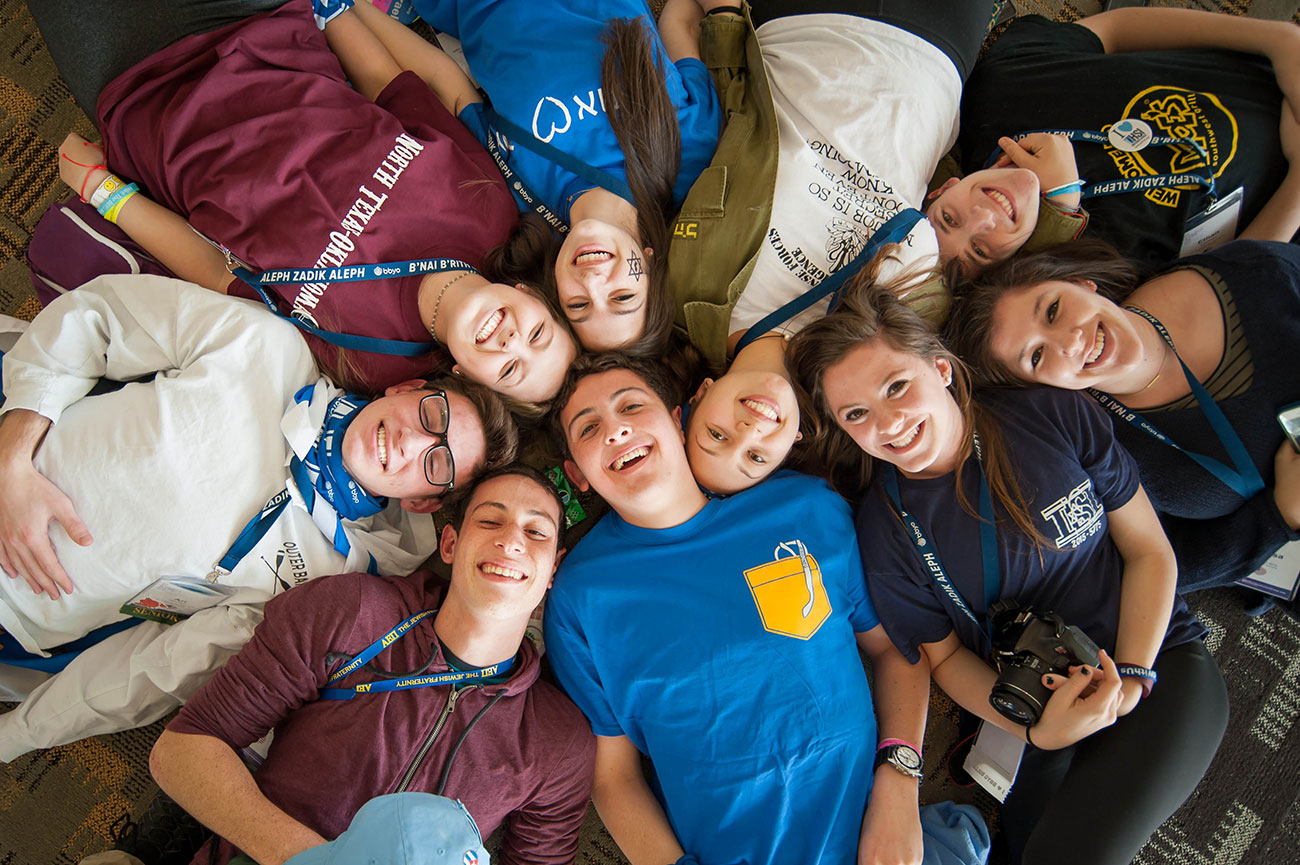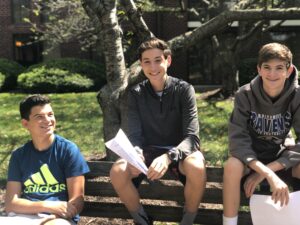Resiliency Roundtable: Helping Professionals Focus on Mental Health Year-Round
May 2nd, 2022
May’s Mental Health Awareness Month spotlights the challenge that Jewish educators, engagers, and leaders experience year-round: the growing youth mental health crisis. More than ever, these professionals are called on to identify youth who may be struggling, hold challenging conversations, provide support and, if needed, to help connect youth and young adults to proper care.
Since 2019, the Resiliency Roundtable has brought together professionals from nearly 50 organizations—including BBYO, Hillel, OneTable, PJ Library, Moishe House, and staff at Federations around the country. These organizations and a growing list of dozens of others work with clinicians in Jewish settings to understand the issues young people confront and to support each other in these efforts. Ultimately, this endeavor strengthens the Jewish community’s ability to provide developmentally and culturally-appropriate care and build resilience among young people.
 Through the Roundtable, leaders meet regularly to share best practices, problem-solve, and collaborate. They create resources that draw on Jewish wisdom to promote well-being and healthy environments, addressing issues such as addiction and substance use disorders, controlling behaviors, body image, issues of suicidality, creating physically and psychologically safe spaces, how antisemitism, impacts mental health, coping with failure in high performing communities. By their actions, the professionals in the Roundtable have helped prove that Jewish engagement and experiences can be a powerful tool for building resilience. To date, hundreds of professionals have been trained and positively influence youth and young adults every day. Organizations can learn more about joining the Roundtable here.
Through the Roundtable, leaders meet regularly to share best practices, problem-solve, and collaborate. They create resources that draw on Jewish wisdom to promote well-being and healthy environments, addressing issues such as addiction and substance use disorders, controlling behaviors, body image, issues of suicidality, creating physically and psychologically safe spaces, how antisemitism, impacts mental health, coping with failure in high performing communities. By their actions, the professionals in the Roundtable have helped prove that Jewish engagement and experiences can be a powerful tool for building resilience. To date, hundreds of professionals have been trained and positively influence youth and young adults every day. Organizations can learn more about joining the Roundtable here.
I feel like definitely more people are coming out and asking for help, but at the same time, being a little more scared to. In quarantine, we had a lot of time to ourselves. A lot of people had time to think and were stuck in their thoughts. We have school guidance counselors, and the rate of people going to these counselors and seeking help has gone up tremendously…Having a friend to talk to is amazing, but you can’t do nearly as much as someone who is a licensed professional.
– Carly LaKind, Jewish Teen Initiative Peer Wellness Fellows from Swampscott
In an uncertain world, amplified by two years of collective trauma, young people face increasing levels of stress, anxiety, depression, and loneliness. They often turn to friends first when they are struggling, but not everyone is properly equipped to respond. In addition to trainings the Roundtable offers to Jewish professionals, it also offers teen Mental Health First Aid (tMHFA) trainings through its trusted partner, National Council for Mental Wellbeing. These trainings teach teens how to identify, understand, and respond to signs of mental health and substance use challenges among their friends and peers. By the end of 2022, the Roundtable will train hundreds of teens in these skills.
If mental health becomes less of a stigma and more of an accepted social concept, and if teens can help their friends, our society will become a better place. We tell students they are not therapists or social workers, but we give them the tools to help someone find the people and places where they can have safe conversations.
– Jillian Feiger, Director of Jewish Student Connection, who led a Teen Peer-to-Peer Mental Health First-Aid Certification Training in Colorado, run in partnership with the Jewish Teen Education and Engagement Collaborative powered by Jewish Federations of North America.
The Resiliency Roundtable is a strategic pillar of the Jewish Federations of North America (JFNA)’s new BeWell initiative , in partnership with the Network of Jewish Human Service Agencies, the leading voice for the Jewish human service sector and association of 150 nonprofits. This unique and strategic partnership is helping youth and communities across the U.S. draw on Jewish tradition to strengthen their resiliency, develop the emotional literacy to support friends, and form positive relationships.
This unique and strategic partnership is helping youth and communities across the U.S. draw on Jewish tradition to strengthen their resiliency, develop the emotional literacy to support friends, and form positive relationships.
JFNA’s leadership with the BeWell initiative and this partnership gives Jewish professionals and organizations around the country access to BeWell’s consulting, skills-based trainings, education workshops, resiliency-building programs, and grant funding. Through these services, BeWell aims to help educate, prepare, and support people who are seeking or providing mental health care for teens and young adults. BeWell’s grant recipients will include local and national organizations who will be connected to the Resiliency Roundtable and each other so they can benefit from collective research and best practices.
By both bringing professionals together through the Resiliency Roundtable and expanding resources and support through BeWell, JFNA’s strategy reflects the community’s need and the opportunity at hand. When young people develop a strong sense of self, they will be better able to build a more compassionate world. Jewish organizations, culture, and traditions have the power to elevate their lives and deepen their connections to each other and the Jewish community.
Learn more at jewishtogether.org/bewell and get your resources for May’s Mental Health Awareness Month and the entire year. The Jim Joseph Foundation is a supporter of the Resiliency Roundtable and the larger BeWell Initiative. For more information please contact [email protected].